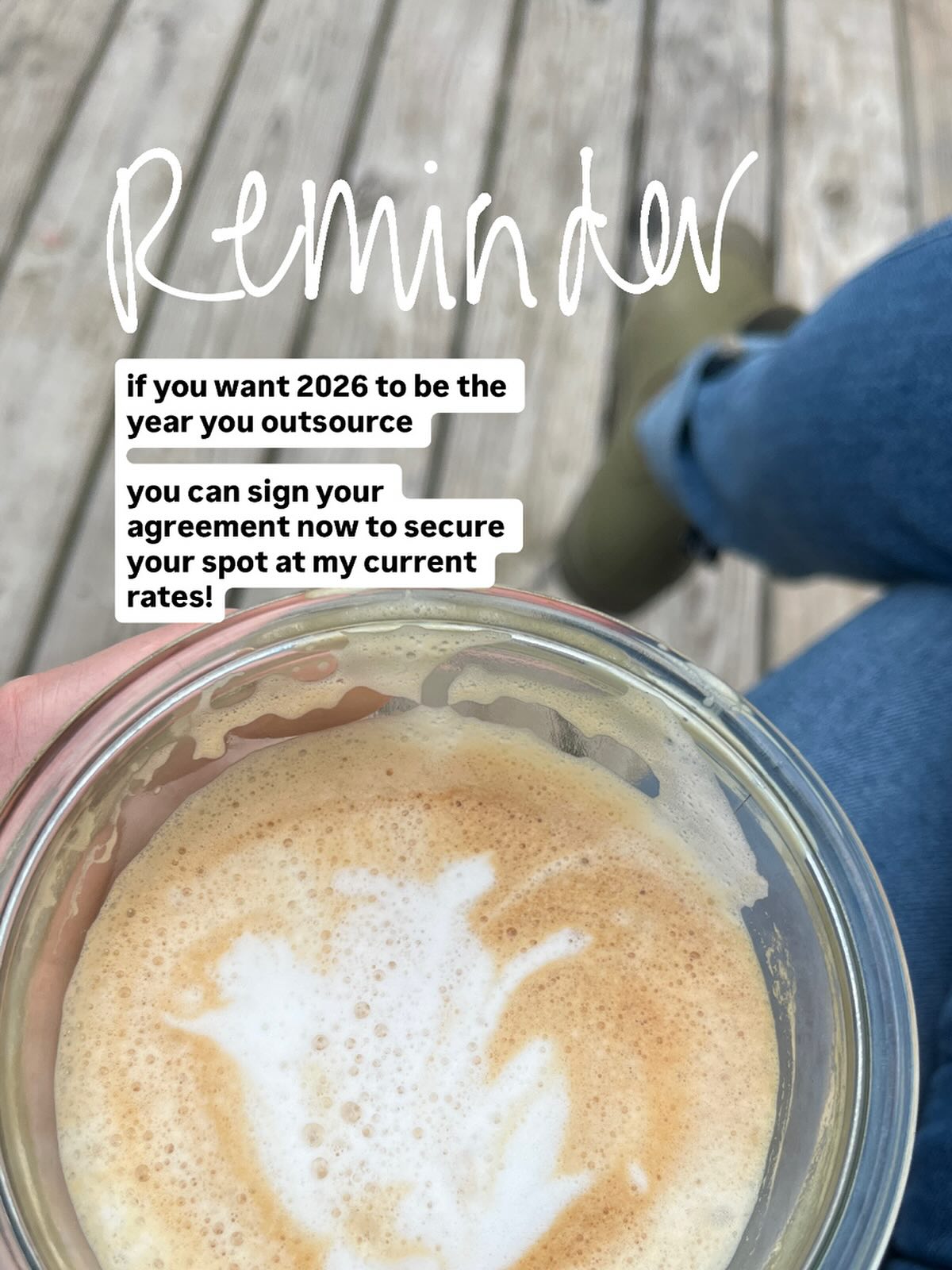Tax Deductions You Might Be Missing as a Small Business Owner
Every. Single. Year. I watch small business owners overpay on their taxes. Not because they're being careless. Not because they're trying to play it safe. But because nobody told them what they're actually allowed to write off.
The IRS isn't going to send you a friendly reminder. And honestly? A lot of bookkeepers won't either (unless they're really paying attention). So you end up leaving thousands of dollars on the table without even knowing it.
Let me fix that. Here are the tax deductions most of my clients miss—until I point them out.
Home Office Deduction (yes, even that corner of your dining room)
I'm sure you've heard home office deductions are a red flag for audits. Some think your workspace needs to be a full separate room with a door that closes. Not true.
If you have a dedicated space where you work—even if it's just a desk in the corner of your bedroom—you can deduct a portion of your rent, utilities, internet, and homeowners insurance.
The simplified method makes this ridiculously easy: $5 per square foot, up to 300 square feet. That's up to $1,500 you could be writing off.
I had a client who'd been working from home for three years and never claimed this. Three years!
Your Phone and Internet
You're on Zoom calls. You're answering client emails. You're taking business calls on your cell.
Deductible.
If you use your phone or internet partially for business, you can deduct that percentage. Use your phone 60% for work? Deduct 60% of the bill. Same with internet. Just be reasonable about it—don't try to claim 100% if you're also binge-watching Netflix every night.
Meals with Clients
Coffee with a potential client. Lunch with a referral partner. Dinner while discussing a project. All deductible at 50%.
The key is documentation. You don't need anything fancy—just a quick note about who you met with and what you discussed. I tell my clients to snap a pic of the receipt and add a note in their bookkeeping app right there at the table. Takes 30 seconds.
All Those Little Subscriptions You Forgot About
QuickBooks. Canva Pro. Zoom. Your scheduling app. That project management tool you pay for every month. If you use it for business, it's deductible. This includes:
* Email marketing platforms
* Design software
* Scheduling tools
* CRM systems
* Cloud storage
I can't tell you how many times I've found subscriptions my clients forgot they were even paying for. And yeah, we cancel the ones they're not using—but the ones they ARE using? Those $9.99 monthly charges add up fast. Make sure you're writing them off.
Professional Development (aka that course you bought and may or may not have finished)
Online courses. Conferences. Books. Coaching programs. Certifications.
If it helps you get better at what you do or stay current in your industry, it's deductible. This also includes professional organization memberships and industry publications.
I had a web designer client who spent $2,000 on a coding bootcamp to learn a new framework. She didn't realize she could write the whole thing off until tax time. Don't be like her—track this stuff as you go.
Marketing (even if it's just your website)
Facebook ads. Google ads. Website hosting. Domain renewals. Business cards. That brand photoshoot you finally invested in.
All deductible.
Even the copywriter who rewrote your website or the graphic designer who made your logo? Yep, those too. Anything you spent to get clients or promote your business counts.
Bank Fees
Monthly maintenance fees. Transaction fees. Credit card processing fees. Interest on business loans or credit cards. They're all deductible. The key is making sure they're categorized correctly in your books (which is where a bookkeeper comes in handy, just saying).
Mileage (Not your daily commute, but pretty much everything else)
Meeting a client across town? Driving to the post office to ship orders? Running to the bank to deposit checks? That's all business mileage. In 2025, you can deduct 70 cents per mile.
Track it with an app like MileIQ or just keep a simple spreadsheet. Your commute to a regular office doesn't count, but trips to client sites, vendor meetings, or business errands? Absolutely.
I had a client who was driving to client meetings 2-3 times a week and never tracked a single mile. Don't leave that money on the table.
Contract Labor (Your VA, designer, or anyone you pay to help)
Hired a virtual assistant? Paid a graphic designer? Brought in a freelance developer?
All deductible.
Just make sure you're issuing 1099s if you pay them $600 or more in a year for 2025. (Note: This threshold is increasing to $2,000 starting in 2026, but for now, it's still $600.)
This is one of those things that's easy to forget about until January rolls around and you're scrambling (and yes, your bookkeeper should be reminding you about this).
Insurance
General liability insurance. Professional liability (E&O). Even health insurance if you're self-employed.
These are all deductible. And if you're paying for health insurance out of pocket as a self-employed person, you might qualify for the self-employed health insurance deduction—which is separate from your standard deduction and can save you a ton.
The One Deduction Everyone Forgets
Your bookkeeper.
Yeah, I said it! The cost of bookkeeping services is 100% deductible. So if you've been on the fence about hiring someone to keep your books clean and help you find these deductions, just know that the IRS is basically subsidizing part of that cost.
So What Do You Do Now?
Go look through your last three months of transactions. I'm willing to bet you'll find at least five expenses you should've been categorizing as deductible but weren't.
And if you're sitting there thinking "I have no idea if I'm doing this right"—you don't have to guess. Your books should be clean, your deductions should be tracked, and you should know exactly where your money's going.
Because the IRS isn't going to remind you to claim these. But I will.
Ready to stop leaving money on the table? Let's talk.





Hey there!
I'm Taylor—the face behind Coyne Bookkeeping. I believe your business should support your life, not take it over.
Whether you're behind, burned out on DIY, or just want someone steady providing support that actually feels helpful—you're in the right place.
Ready to stop DIY-ing your bookkeeping?
If you've been staring at QuickBooks wondering what the heck you're doing, you're not alone.
That's literally what I'm here for.



.webp)




